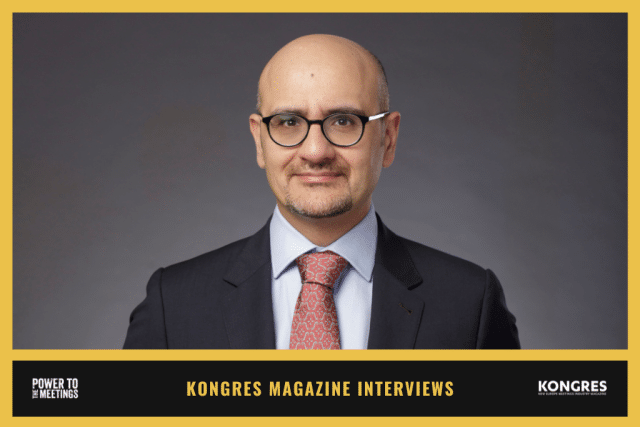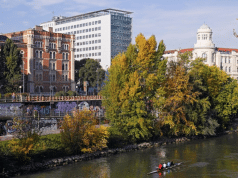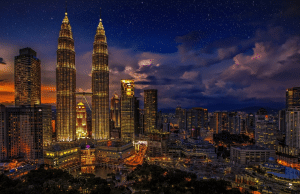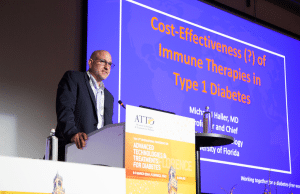Q1: Why is organising COP28 sustainably important to you personally?
From my perspective, sustainability is not something that happens overnight. It requires a real commitment. Particularly the case for UNFCCC as the organisers of the world’s largest international meeting – the biggest climate meeting. Some 85,000 people came together in Dubai for COP28.
If we are going to organise an event which is fundamentally about tackling climate and greenhouse gas emissions, it must be sustainable. We can only do this if we have the right partners. We’ve been fortunate because we have had the support of the UAE. Before that, for example, in the UK with the COP26, we had a partner similarly committed to delivering an event that is sustainable in all its aspects.
Q2: Did you measure the carbon footprint of COP28 in line with all the United Nations goals?
When we connect the dots for an event like a COP, we put sustainability at the forefront. I think the important thing is to make sure that you’re trying to make it sustainable from all perspectives, whether it’s the economic aspects, the environmental aspects, the societal aspects, all those aspects covered by the SDGs, should be sustainable. But it is challenging. There are going to be carbon emissions associated with an event like this because a lot of people travel internationally. It’s demanding to drive those down to zero. That is why we work with the host country to ensure greenhouse gas emissions are avoided as possible. We calculate the unavoidable emissions. For this COP, they’re still finalising the calculations for what happened in Dubai, but they will issue a report which lists the unavoidable emissions. These will then be offset to the degree possible using offsets that meet internationally recognised standards.
Q3: How would you describe a sustainable event in your own words? What are the main aspects event organisers must consider to make their event more sustainable?
I think it has to be on those three issues I laid out. It has to be sustainable in terms of climate – offsetting, limiting greenhouse gas emissions, and doing everything we can to limit the climate impact. Secondly, it has to be economically sustainable. An event has to leave a legacy. You shouldn’t just host an event in a country and use only temporary infrastructure.
When we deliver COP30 in the Amazonian city of Belém in 2030, we will contribute to the economy and not take away resources from the surroundings. Finally, an event has to contribute to the community and the society within which it takes place. We do that by having an expansive volunteer program where local volunteers work with the government to help us deliver the COP. They provide some of the services at COP, giving them an up-close-and-personal experience of being involved with the COP. That gives them life skills in an international environment they wouldn’t gain otherwise. I think that serves them well in their future lives and careers.
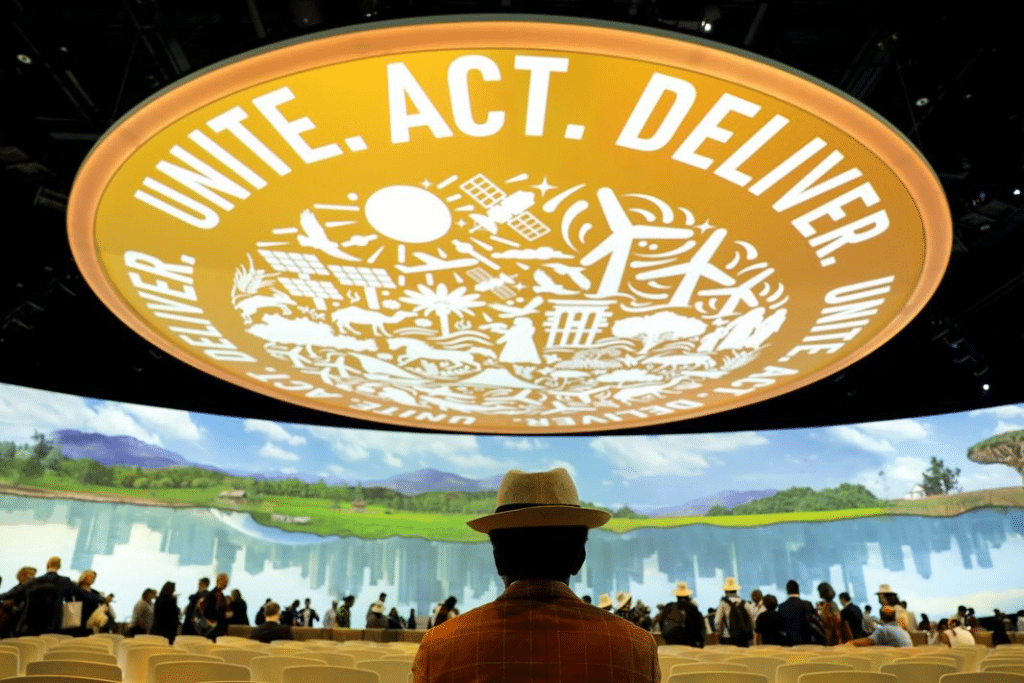
Q4: How did attendees react to the measures? Did you receive any of their comments?
Many of the aspects of the challenges we face in terms of sustainability are not visible to the participants. Because what we are doing when constructing the venue is trying to make sure we limit the climate impact. That’s not something they will notice, but we do try and inform them of it. The reactions to some of the aspects that are more visible to them were, by and large, positive. For example, the food provided at the venue was well received. We always try to work with the host country, in this case, UAE, to put together a food strategy and ensure the cuisine is sustainable and local. You must take advantage of what’s available in the local area so you don’t have to transport food long distances. That also provides an opportunity for people to be introduced to new local cuisines and delicacies. During COP26 in Glasgow, 90% of the food came from within a 30-mile radius. In addition, attendees were introduced to authentic Scottish food, including haggis and other specialities they wouldn’t taste otherwise.
Q5: What can you say about the term “beyond carbon” in terms of COP28 in Dubai?
I believe the event went beyond carbon. You can take the results of the COP28 positively or negatively; it all depends on your point of view. But on balance, the conclusion is positive, at least for me, because this is the first time in history that the whole international community committed to transition away from fossil fuels.
COP28 was a historical COP. At the same time, we should recognise there’s a lot more to be achieved. If we had to achieve this goal of limiting global warming to 1.5 degrees, we need to work harder and do more in terms of implementation and mobilising finance, which will be the main topic of COP29. So there’s still a lot of work to be done. We shouldn’t be sitting back thinking we’ve achieved something when we have only made half a step. We need to continue to work forward. But I think the value of a COP is that it’s not just three or four people sitting in a room saying: “What should we do?” It is about bringing 196 countries together. And it is never easy to bring all those people and move them in one direction. Even with 196 people from one village, it is hard to reach a consensus. So you have to convene 196 countries representing every single part of the globe. And that’s challenging. Going back to your question of sustainability, I think what’s important to me is the impact on the community. An event has to be a part of where you are. I think it’s straightforward to organise an event alienated from its surroundings. You go to a conference, perhaps in a conference centre in Cologne or one in Frankfurt or even Paris which is not linked in any way to the surroundings. What is very important for an event like COP is making sure that the country where it is hosted feels part of that event and linked to its people.
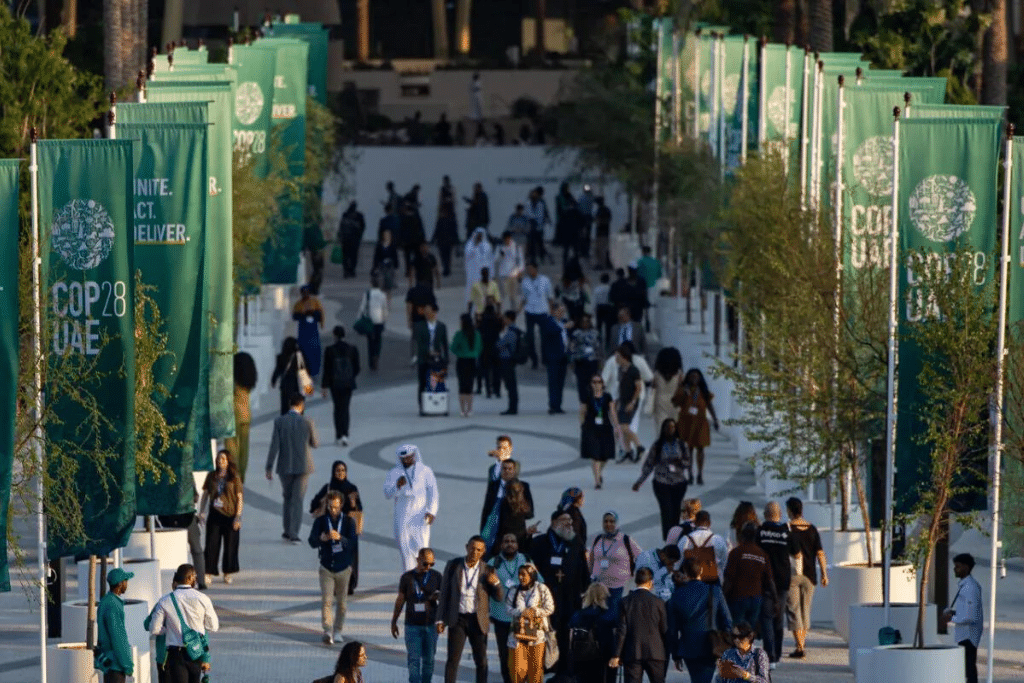
Q6: How can event organisers play their part?
I think you need to put sustainability at the heart of event organising. Right from the beginning, meeting planners should think about sustainability and these different aspects and not only consider the possibility of carbon offset. That should be the last resort when there are unavoidable emissions like flying. But for everything else, sustainability should be included right from the beginning. And then, for example, when you’re putting together an event and thinking about sourcing materials, it’s crucial to consider sustainability. Event organisers can think about how all the different materials can be configured and joined together. For instance, bringing materials on one truck rather than on ten. It is similar to putting an Amazon order together, where you put all your orders together rather than order many different delivery boxes. When we were organising COP26 in Glasgow, I learned that when we worked with contractors, we were able to incentivise them to start thinking about how they are dealing with deliveries coming to the event. It took them to another level of thinking about sustainability.
Q7: Is it possible to create more sustainable travel at all? How to convince somebody who is a prime minister to travel sustainably?
It can be done, albeit it’s not easy for global travel. You have to start at the local level. Residents must commit to travelling sustainably, whether that means by train or whether that means by an electric vehicle.
I think international travel is challenging. There’s no way around that. Right now, we do not have the technology to have very low-emission travel on planes. And it’s not realistic to expect world leaders to take a boat or ferry to Dubai or elsewhere.
What I’m excited about is the opportunities that technology can bring. If we can go beyond video conferencing, we may be able to reduce the amount that people have to be at events in person. However, summits may still be needed. Maybe you don’t need all the people to come together on a summit. But in the lead-up to different meetings, you could do things more virtually if that technology can help you move in that direction.
Q8: How do you choose a destination for global events?
The answer to that is that we don’t choose. The UN and the UNFCCC, in this respect, are simply the secretariat. The process we’re a part of is driven by parties and countries. Each year, the COP rotates between regional groups. There are five regional groups – Africa, Latin America and the Caribbean, the Western European group, Asia Pacific and the Eastern European group. This year, it was the term of the Asia group. Within the Asia group, the countries decide who should host the COP. They decided on the UAE, while the Eastern European group decided on Azerbaijan for COP29 in 2024. Our task is to look at the facilities in Azerbaijan and help them work out what they need to do to deliver a sustainable COP. We’re looking at the options for the venue and putting together the different work streams that we need to put together to deliver the event. That also includes sustainability work.
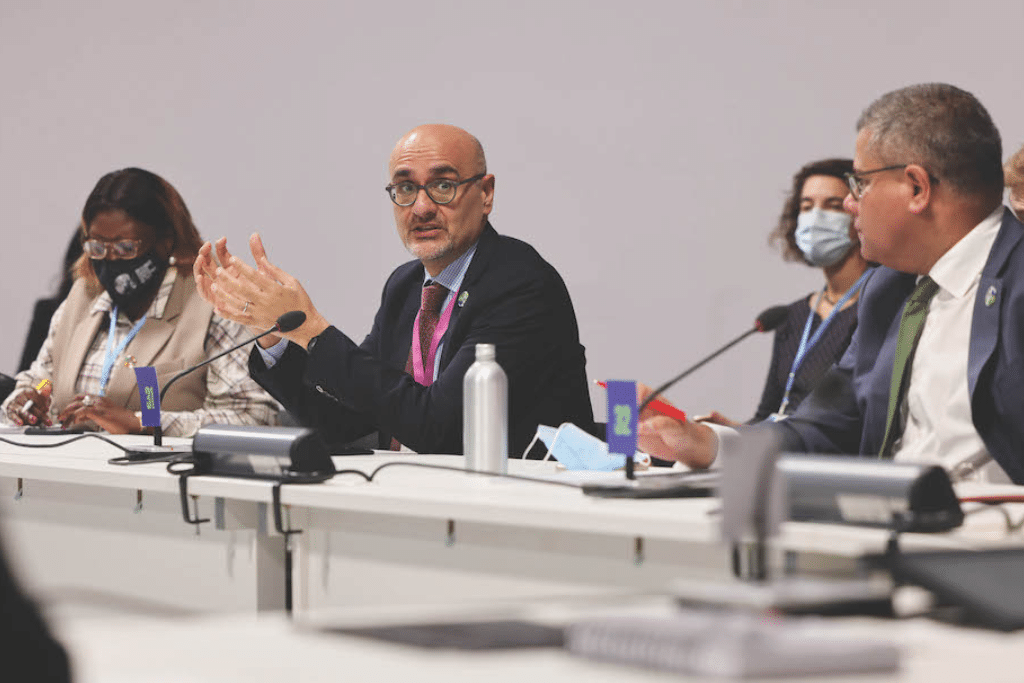
Q9: When can we expect the report from Dubai about all sustainable activities?
I think in the following months. After a COP, you must gather all the information and make sure it is transparent and credible. Although they are still garnering data, I think they’re close to the end. I think they will have a sustainable issue published soon.
Q10: Do you think that organising a sustainable COP or event is more expensive or cheaper at the end?
As I said, if you put sustainability at the heart of it, you can find ways of making it economically sustainable and cheaper. You can do that, for example for transport and bringing services and materials to a venue to construct the event, regardless if it is a pavilion or a meeting room. If you can sustainably think about that and group the delivery, you can reduce the budget, too. Sustainability can be a winning proposition in terms of money as well.
Q11: How can we contribute to a better and more sustainable world?
I do believe all of us can. I think it was Gandhi who said you have to be the change that you want to see. Limiting emissions of greenhouse gases is vital. We must incentivize countries to make real commitments and implement them on all levels. Although it seems impossible, I think you can make a difference individually in terms of how you live your own life, how sustainable you make it and what transport you opt for.
You can make an impact by being part of a movement to foster change, choosing sustainable products, voting for environmentally-aware parties and taking action to persuade political leaders to make a difference. So all that has to come together to make changes needed to limit greenhouse gas emissions.
Q12: What would you say to the Z generation anxious about climate change?
I think they are right. We’re not doing enough. I agree with them 100%. We need to do more. And I think you need to mobilise the older generations to take action, but also remember that the younger generations will soon be in leadership positions. Our generations will soon retire. The younger generations will be the ones making the decisions. You need to make sure that everybody in your generation is also committed to this cause. We shouldn’t just influence the older generations but influence the next generations. Climate change is not a problem we can solve in a few years. It will take a generation and more to keep committed to making change. And we need to trust science.
Learn more about the takeaways from COP28 here.


